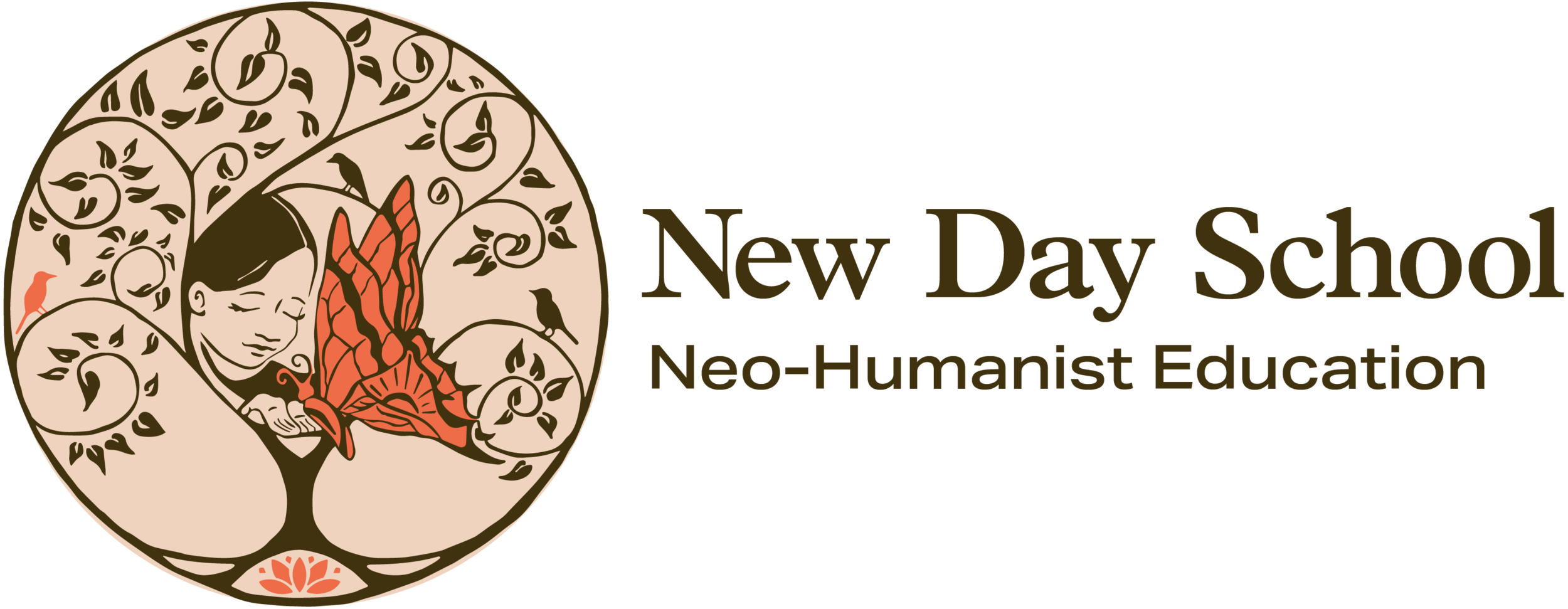Philosophy
Neo-Humanist Education
The philosophy of Neo-humanism, begins with an understanding that all beings are inherently interconnected and all beings have intrinsic value.
According to P.R. Sarkar, (the propounder of Neo-humanism), this philosophy expands upon humanism (love for all human beings) to encompass love and compassion for all beings. With Neo-humanism as the foundation, our education system emphasizes the importance of developing the whole child in order that they may realize their highest potential. Lessons bring to children, parents and teachers practical knowledge and expansive ideas to ponder.
Through the blending of yoga and meditation practice, artistic expression, sustainable practices, intellectual exploration, ethical values and service, the Neo-Humanist curriculum helps us see interconnections and develop deep love and respect for all.
“Education is perfect knowledge of what I am and what I should do.”
At New Day School, we describe the development of the person in terms of Movement—Awareness—Awakening.
Just as we observe and watch our children grow and learn before our eyes, in the same way, we all are learning and growing, each in their own way. We are learning and expanding our minds all on a spectrum of movement, which we call life. Our experiences and environment impact us, and as we become more aware we can begin to modify and transform our movement—we say we have become mindful of our thoughts, words, and actions. We can begin to direct our movement toward the unfolding of our inner self, we begin to awaken to our highest potential that lies within.
Along this path of growing awareness, the longing for awakening—for understanding of the great that has been with us all along our life's journey—becomes stronger and even stronger until finally, it becomes a focal point of everything we think, do and say. We begin to truly know our connection with all. Neo-humanism is about the deepest connection of “I” and “All”. The beauty of Neo-humanism is the vibrant truth of Oneness, of connection, that which is our true nature and we long for more than anything.








